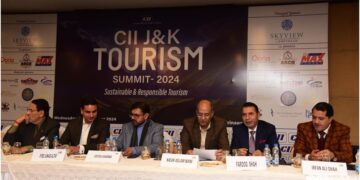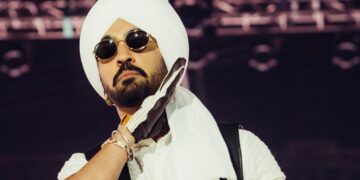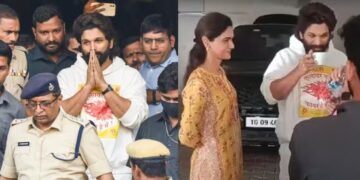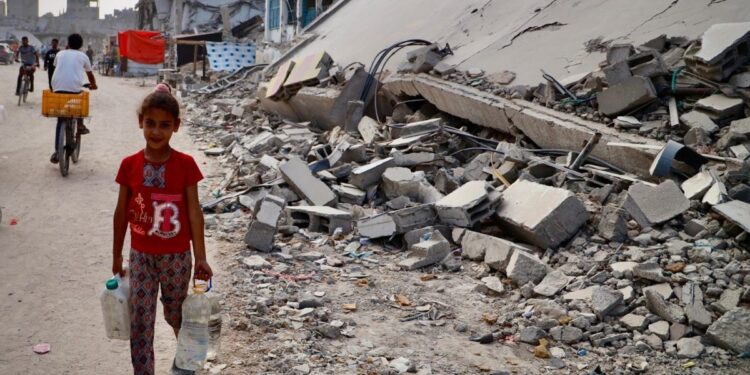I have arrived in Palestine on Janmashtami, Lord Krishna’s birthday. I’ve come with a group of Jewish, Christian, Muslim, Hindu and Buddhist siblings.
Krishna was born in a prison in Mathura, and while his evil uncle Kamsa planned to kill him, the guards fell asleep and the prison doors mysteriously opened. Krishna’s father Vasudeva carried him across the Yamuna River to safety in Gokul.
Gaza has been described in the past as the world,s largest open air prison by the United Nations and Human Rights Watch. Israel has enforced a siege of Gaza for almost two decades. Not only can Gazans not freely enter and leave, they are denied adequate food and water, and Israel periodically bombs them in a practice they call “mowing the lawn.”
The siege of Gaza is illegal according to international law.
Palestine is an occupied territory, and international law allows her the right to resist Israeli occupation under the Geneva Conventions.
Krishna had an idyllic childhood in Gokul, and Indians enjoy retelling stories of his many childish pranks including stealing butter from neighbours because he loved butter.
Since the Hamas attack on Israel on october 7th when 1200 israelis were killed and 251 Israelis were taken hostage, Israel has responded with a brutal bombing campaign, which the International Court of Justice has ruled is plausible genocidal.
The court’s ruling stated that “there is a real and imminent risk that irreparable prejudice” to the rights of Gazans under the Genocide Convention.
At this point Gaza isn’t an open air prison; it’s a bombed out cemetery.
40000 gazans have been killed, a third of them children. We have seen photos, videos and testimonies everyday since October 7th, of parents carrying their dead babies’ corpses in plastic bags, children with limbs blown off, children with their brains blown out, children who were decapitated.
Schools, hospitals and refugee centers have been deliberately targeted by Israel. In the bombing of al-tabin school few weeks ago, over 100 were killed, and not one of the bodies was in a condition that allowed their families to identify them.
In Gaza today, children are malnourished, facing famine, and there have even been cases of polio among children stemming from malnutrition and non-existent sewage treatment. UNRWA, the main conduit for aid and education in Gaza, is no longer funded by the US.
In recent weeks, we have reports of children among Gazan prisoners being tortured by Israeli soldiers.
Krishna played a key role in the epic war of the Mahabharata. He was the chief negotiator between the two sides, and tried to prevent the war without taking up arms himself.
The Mahabharata is eloquent with regards to war etiquette. It enjoins war between equals, the giving of notice before the commencement of hostilities, and the limitation of the battle to professional soldiers. Civilians were not to be brought into the war, and women and children always protected.
There are injunctions against killing women, children, non-combatants, and even “those who are in fear.” Enemy soldiers, when wounded, were to be offered medical assistance and granted freedom after they were healed.
Israel does not observe such rules of war. There are rarely announcements before civilian sites are bombed. Civilians are asked to evacuate to safe zones, and then the safe zones are bombed. Israel claims to be in ceasefire negotiations with Hamas, but it assassinated Hamas’ chief ceasefire negotiator Ismael Haniyeh. Israel uses weapons that are illegal, like white phosphorus.
The Bhagavad Gita contains the divine teachings of Krishna in the role of guru and charioteer to Arjuna. Krishna asks him to:
– strive for “lokasangraha,” the wellbeing of all.
– be “para dukha dukhi,” seeing the joys and sorrows of others as one’s own.
– undertake his own dharma – righteous course of action – since it is better to do one’s own dharma imperfectly than someone else’s dharma perfectly.
– not feel attached to the outcomes of his actions
As Hindus the world over observe Janmashtami, and meditate on the significance of the life of Shri Krishna, we must ask ourselves how we feel about the genocide that Israel has been waging against the people of Gaza for ten months, with no end in sight.
Indian drones and bombs are among the arsenal that Israel is deploying in this genocide. We are complicit. Even if it makes no difference at all, we must speak up.
The Bhagavad Gita is a call to action. Arjuna is confused, depressed, paralysed, and Krishna tells him to get up and act.
He says, “Those who see action in inaction and inaction in action are truly wise amongst humans.”
Krishna is telling us that inaction does not mean neutrality, and action isn’t necessarily right action.
Remaining silent in the face of injustice makes one complicit. We don’t have the option of sitting this one out. And even if we take a stand and do our part, there is no guarantee that we will make the right choices.
I have traveled to Palestine on Janmashtami to bear witness, listen and learn. With humility, I will pray for and call for an end to this catastrophe.





















